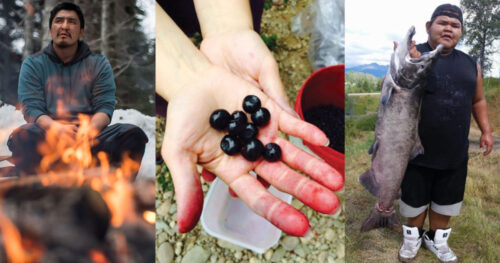
FOR IMMEDIATE RELEASE
Tues, January 21, 2020
Smithers (BC) – Contrary to recent statements by Premier John Horgan, Coastal Gaslink (CGL) does not have its final permits to proceed with pipeline construction. CGL is required to submit a report to the Environmental Assessment Office (EAO) addressing the impacts of the project and its proposed mitigation measures. The report is incomplete, as CGL failed to consider or even mention the Unist’ot’en Healing Centre. As a result, Unist’ot’en has requested that the EAO continue to withhold final permits for construction.
On Nov 20, 2019, Coastal Gaslink Pipeline Ltd. submitted their Final Report on the effects of construction and operation of their proposed pipeline to the BC EAO. The completion of this report is a condition of CGL’s Environmental Assessment Certificate for the portion of the project affecting the core of Unist’ot’en Territory and the western section of Gidimt’en Territory. The report is meant to consider environmental, economic, social, heritage and health effects of the proposed project.
CGL failed to include any mention of the Unist’ot’en Healing Center, the most significant economic, social and health related institution within the study boundary, in their report. Coastal Gaslink has also proposed woefully inadequate measures to mitigate environmental impacts, namely by offering to deliver potable water to the healing centre in the event that pipeline construction pollutes the Wedzin Kwa river. The river is a pristine source of drinking water for the healing center and nearby towns, and a salmon spawning estuary that is tributary to two major river systems downstream.
The Unist’ot’en Healing Center is an Indigenous-owned and operated land-based health facility and wilderness lodge located in the heart of Unist’ot’en’s Talbits Kwa Territory, which is central in the dispute over the Coastal Gaslink Pipeline. With investment in buildings and infrastructure in the territory valued at well over $2 Million and a recent $400,000 grant for operations funding from the First Nations Health Authority, the Unist’ot’en healing center is the only facility of its kind in the north, and delivers year round, land-based cultural programming on site.
Any other wilderness lodge, tourism outfitter, or institution with economic or social interests within the pipeline footprint is required by the EAO to be considered in the contents of the report, so that potential conflicts can be mitigated. The Unist’ot’en Healing Center has yet to be granted the same consideration by CGL’s report.
Pipeline pre-construction activity in the past year seriously compromised delivery of the healing center’s programming by impeding hunting, trapping, and harvesting activities. Historically, Indigenous cultural, social and economic practices have been dismissed and devalued by colonial regulatory bodies, perpetuating institutional racism. British Columbia’s recent passing of UNDRIP provides legal grounding that Indigenous initiatives are given equal weight to Canadian or provincial interests.
“We have faced centuries of colonial oppression, racism and traumatic experiences as Indigenous people. Our connection to land and the cultural practices that extend from this connection are the most effective source of resilience and healing for our people. The Unist’ot’en Healing Centre was built with the assistance of settler supporters working hand in hand with us to fund and construct the infrastructure that allows us to provide self-determined culturally rooted, land-based healing programming by, and for, Indigenous Peoples. It is the fruition of decades of planning and de-colonizing work. This vision of healing through cultural revitalization and reconnection to the land is the foundation of our land use plan, and it depends on healthy, intact land. It requires uninhibited access to our territory which contains all the relatives (aka, resources) necessary to comprehensively practice our culture including a pristine water source, plants, medicines and animals to sustain us, physically, mentally, emotionally and spiritually. Within the remaining intact Unist’ot’en territory, Talbitz Kwa, the location of the Centre, is uniquely suited to support this vision.”
– Karla Tait, Ph.D. Clinical Director of Unist’ot’en Healing Centre, Unist’ot’en House Member
Media contact:
Tsewedielh@gmail.com


